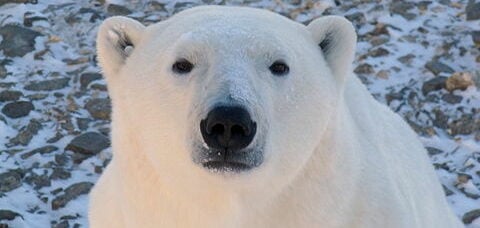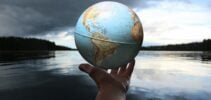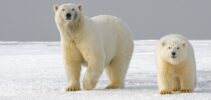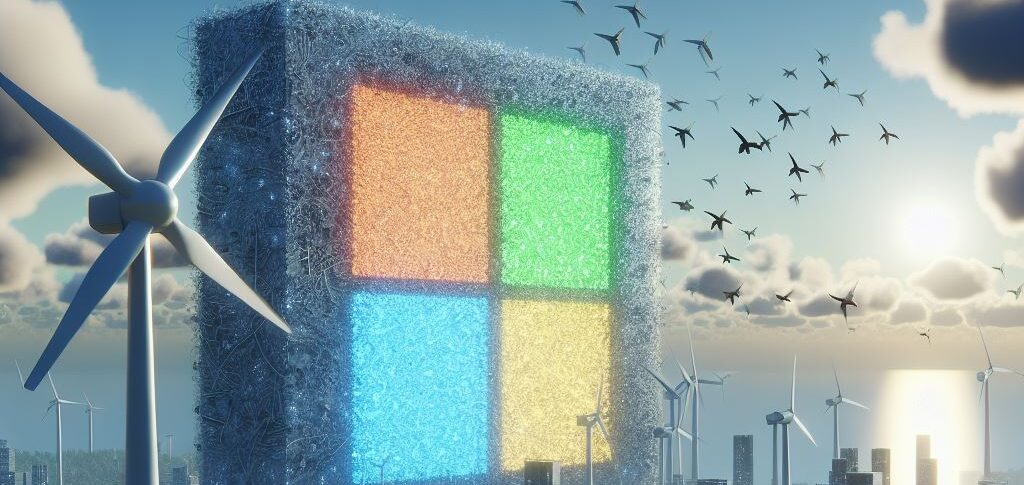The mayor of Churchill, with an eye on the potential of mining and local tourism, welcomes the increase in temperatures in the region. According to him, “they are also opportunities for economic growth for the local population”.
ADVERTISING
- Churchill is an isolated settlement located on the coast of Hudson Bay, Canada, where global warming is 3 times faster than in other parts of the world and where the ice is gradually disappearing.
- In decline since the 80s, the polar bear population in the city now numbers 800 individuals: as many as there are humans in the city.
- Global warming is reducing freezing times in the region and forcing polar bears to stay on land longer. Often hungry and weak, they wander closer and closer to urban centers.
The situation in Churchill reflects what scientific studies say: the global warming is putting Arctic species at risk, especially by opening the door to other southern animals.
David Daley, a sled dog breeder who was born in Churchill, finds it increasingly difficult to recognize that once-familiar world.
“Mother Earth will punish us for all the devastation we are causing to our planet,” he says.

Each year, Daley fears the later and later arrival of snow. “My dogs are waiting for winter, like the rest of us,” he says. “This is common for a dying culture.”
ADVERTISING
Polar bears
Adventure there it requires certain precautions: a rifle, bear repellent, and the need to hike in a group after dark or when there is poor visibility. Everyone there has a story to tell about polar bears.
For Daley, humans “have no other option”: they must “adapt” as animals are forced to do. The city has new radars capable of detecting bears two kilometers from the furthest houses, even at night and in fog.
“I don’t remember, as a girl, feeling at risk during the summer. Today it’s different, my children can’t play on the rocks along the coast like I used to,” says Daley’s daughter, Danielle, 33 years old.
ADVERTISING
Vulnerable population
Unemployment, precarious housing and discrimination mean that the climate issue is not the main emergency in the perception of many residents of this settlement. In Churchill, 64% of children live below the poverty line.
60% of the population is indigenous (Inuit, Cree, Dene, Métis), while in total, the number in Canada is only 5% and in Manitoba, 18%.
- Biodiversity and native people
In their March bulletin, UN climate experts already said that knowledge of the reality of these people must be taken into account in the fight against climate change.
ADVERTISING
In November, during COP27, the UN climate summit in Egypt, some activists will push for policies that take into account indigenous ancestral practices, as its lands are home to 80% of the world's biodiversity. Daley dreams of a new beginning.
“We must, as indigenous peoples, lead reconciliation with our mother, the Earth,” he says.
Economic interest
“You have to look for the positive aspects in all of this,” says Churchill Mayor Michael Spence, a member of the indigenous Cree people.
The increased presence of polar bears now draws a few thousand tourists each year to this remote corner of Manitoba, inaccessible by car.

The mayor dreams of transforming Churchill into a port for grain cultivation in areas increasingly northerly and eventually minerals, which could be mined in the Canadian Far North, in particular thanks to the thaw.
ADVERTISING
(With AFP)
Read the full report at UOL.





